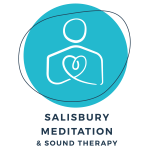In this newsletter we’re going to have a little delve into what happens to your brain when you meditate and why it’s great for brain health and wellbeing.
Because, for an activity that narrows your focus to the present moment, there is a lot that’s happening in your brain!
Meditation develops various regions of your brain
The brain is a wonderfully plastic organ that responds to the activities that you do. So the more you practice something, the more developed that region gets.
Your brain develops through neural connections. Neurons, the information processing cells in your brain, connect to make neural pathways, which are responsible for your thoughts, sensations, feelings and actions.
When you repeatedly do an activity, you strengthen the neural connections involved, which develops the associated regions of your brain.
For example, if you are a taxi driver who constantly navigates different routes, then you are strengthening the neural connections that develop the spatial reasoning parts of your brain.
This same process happens when you meditate!
While research on mindfulness meditation is still ongoing, some small, initial studies have found that over time mindfulness meditation may lead to increases in areas of the brain which aid learning, cognition and memory, resulting in better retention of facts and more mindful behaviour. And also increases in cognitive function, attention and self-awareness.
Improves Memory
Regular meditation has been shown in scientific research to increase the grey matter of the brain via a process called neuroplasticity – this helps to improve our memory.

Stress, fear & anxiety
Regular meditation has been shown in scientific research to reduce the amygdala in the brain. This is the area of the brain where your fight/ flight /freeze mechanism is activated from. Therefore regular meditation can help to reduce feelings of stress, fear and anxiety.
By nonjudgmentally noticing what comes up for you during meditation and then letting it go, you are better able to avoid triggering your fight or flight response when something negative pops up in life.
Improves Mood & Positivity
Regular meditation has been shown in scientific research to increase the blood flow to the anterior cortex and insula parts of the brain, which is where our mood is created. This helps to improve our mood.
One randomised controlled study found mindfulness-based therapy over 56 weeks significantly reduced the period of time before relapse of episodes of low mood. It also helped with long and short-term healthy mood maintenance. Participants reported experiencing a better quality of life.
Happiness
Regular meditation has been shown in scientific research to increase the activity in the left prefrontal cortex of the brain which is where feelings of happiness are created.

Empathy
Regular meditation has also been shown to increase neural wiring (connections) in the front area of the brain (specifically the left frontal cortex) – this enables us to feel empathy towards others but also to ourselves.
Not sure what empathy is? It is considered to be the ability to understand what people are feeling which allows us to give support and compassion.
Improves Emotion Regulation
Regular meditation has also been shown to increase the size of the hippocampus, orbito-frontal cortex, thalamus and inferior temporal lobe. This is the area of our brain where our emotions are created and processed.
So with regular meditation you may feel a more stable mood, reduced feels of stress, frustration or even anger.
Improves Learning
With regular sessions, meditation has been shown to increase the thickness of the hippocampus which aids learning and memory. People often find as they age short term memory can be effected, even ladies going through the menopause or children with exams coming up may also benefit from regular meditation.

Improves Memory & Concentration
Increased blood flow to the brain has also been proven as a product of meditation, combined with neuroplasticity (generating new wiring connections) to the cerebral cortex. This has been shown to improve concentration and memory.
Slows down ageing
Free to all, meditation is a fountain of youth for mental aging. The human brain naturally begins to deteriorate in your 20s. Maintaining a healthy brain can be supported with the powerful practice of meditation.
Meditation is shown to thicken the pre-frontal cortex. This brain center manages higher order brain function, like increased awareness, concentration, and decision making. Changes in the brain show, with meditation, higher-order functions become stronger, while lower-order brain activities decrease. In other words, you have the power to train your brain.
Reduces wandering mind & ruminating thoughts
Regular meditation decreases activity in the default mode network which helps to reduce the mind wandering and ruminating thoughts.
This is something people often tell me they struggle with, either their mind wanders and they find it difficult to stay focused or they find it hard to let go of certain thoughts, they end up spiralling or catastrophizing.
Did you know meditation can help with this? Why not give it a go!

Change your Mind
In today’s hyper-connected, fast-paced environment, the challenge more than ever is to have the discipline to slow down. Modern-day technology also inundates your life with distractions that draw your focus outward. It’s possible to mask chronic stress and other unhealthy psychological states, but we’re beginning to recognise the need for a counter movement.
Taking a “brain break” has become increasingly popular. That may be due, in part, to the recognised benefits of meditation for the brain.
It’s is a great way to ease the frantic state of mind many find themselves in.
The practice of cultivating mindfulness
Sources: https://rightasrain.


Recent Comments